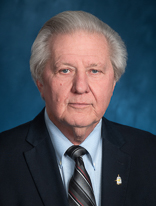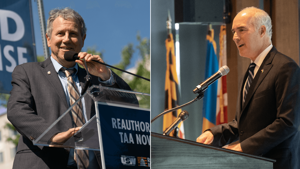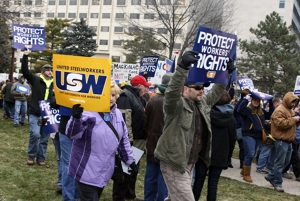A President Fit for the Shop Floor

Instinct told him to run.
But David Simmons stood his ground, took his time even though the seconds ticking away felt like hours, and shut down the flaming machinery at a Southern California oil refinery, averting tragedy.
Simmons chuckles as he relates the story years later, recalling how water from the fire brigade’s high-pressure hoses bounced him around as he wrestled a wrench around a valve in order to close it.
Because so many workers have jobs requiring them to prove their mettle every day—those on the front lines in steel mills, chemical plants, nuclear energy sites and hospitals, among others—Simmons expects America’s president to model courage, too.
Not the toxic, divisive bravado of Donald Trump, stresses Simmons, but the inspiring, unifying fortitude of Kamala Harris, who’s calmly stood her ground in the face of craven attacks, laid out real plans for moving the nation forward and focused, just like he did at the refinery, on getting a tough job done.
“She hasn’t gone dark or mean,” noted Simmons, a longtime member of United Steelworkers (USW) Local 675 who formerly served as a union health and safety representative at a Phillips 66 facility. “She decided, ‘I’m going to be a positive force. I want to be the face of something positive.’”
“We have somebody who’s been responsible, been a great asset to our country,” he said of Harris, noting she entered the race with full understanding of the vitriol she’d face from opponents who have nothing to offer voters but hate. “Do you know how much courage it takes to say, ‘I’m going to go through this anyway?'”
“She isn’t afraid to go into the belly of the beast,” observed Simmons, who's anvassed voters and worked phone banks for Harris’ campaigns.
The unshakable resolve she’s shown in recent months is nothing new.
Simmons, a longtime political activist and labor board representative, noted that Harris overcame numerous naysayers and detractors in 2003 to win a longshot bid for district attorney of San Francisco.
More ...










